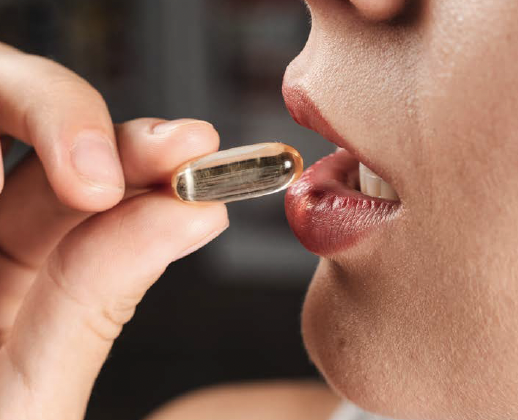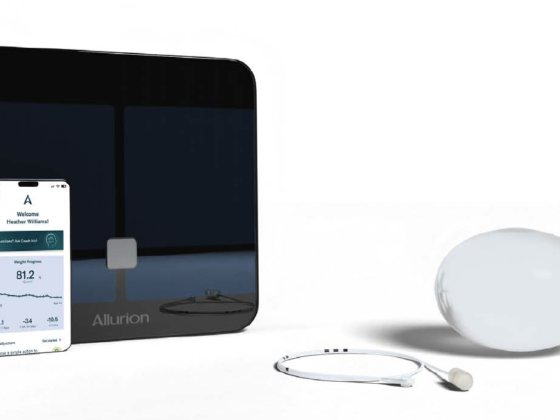Dr Isabelle Meurgey & Dr Alain Butnaru
The microbiota is a set of microorganisms (viruses, bacteria, fungi) which make up a flora of more than 50 different species that live and develop inside our body and on its surface. Our intestine contains between 1.5 and 2kg of this microbiota.
 Though research into the connection between the intestine and brain began in the 1930s, scientists only started to focus on the connection between the intestine and the skin fairly recently. The skin and the intestine have several things in common when it comes to how they function and their physiology. They are both barrier organs and act as a point of exchange with the external environment (25m2 of skin and 400m2 of intestine). They communicate with one another and each one influences the other’s health. The intestinal microbiota’s influence on digestive health and mental health is now well known. We know that, in the event of dysbiosis – that is, imbalanced flora due to a loss of good bacteria and increase in pathological bacteria – the resulting inflammation can cause inflammatory disease in the intestine, type 2 diabetes, obesity, etc.
Though research into the connection between the intestine and brain began in the 1930s, scientists only started to focus on the connection between the intestine and the skin fairly recently. The skin and the intestine have several things in common when it comes to how they function and their physiology. They are both barrier organs and act as a point of exchange with the external environment (25m2 of skin and 400m2 of intestine). They communicate with one another and each one influences the other’s health. The intestinal microbiota’s influence on digestive health and mental health is now well known. We know that, in the event of dysbiosis – that is, imbalanced flora due to a loss of good bacteria and increase in pathological bacteria – the resulting inflammation can cause inflammatory disease in the intestine, type 2 diabetes, obesity, etc.
The skin also has its own flora. Various elements affect this flora: internal factors such as gender, age, immunity, hormones, etc. and external factors such as pollution, stress, UV rays, diet, cosmetics and, more recently, wearing a face mask. What is more, the intestine and skin continuously exchange information, namely via the inflammatory mediators secreted in the intestine, which can alter the skin flora.
To prove this, one particular skin pathology has been studied: acne vulgaris. We now know that the Western diet is partly responsible for this pathology: the consumption of animal-origin dairy products, a diet with a high glycaemic index, rich in saturated fats and low in omega 3s, will stimulate the production of sebum and lead to skin dysbiosis, replacing a healthy microbiota with cutinobacterium acnes, which is responsible for acne. This is why it is vital to treat both the skin and the intestine when dealing with skin pathologies such as acne, but also other pathologies such as rosacea, atopic dermatitis and psoriasis.
These elements give a new direction to the therapies usually employed for skin disease: for a patient with acne, for example, it is wise to start by balancing their diet (adopting a non-inflammatory “Mediterranean” diet), cutting out dairy and adding good fatty acids and zinc supplements for their anti-inflammatory action.
We should try this first, instead of automatically prescribing antibiotics, which unbalance the skin flora over the long term and lead to dysbiosis.
It is also important to check for and treat “leaky gut syndrome”, if identified. We have also found it useful to prescribe probiotics (lactobacillus rhamnosus Sp1) for patients with acne, as well as choosing creams or serums that contain probiotics or prebiotics, in order to boost their good flora. The fact that the skin microbiota has come into the spotlight confirms what we functional doctors have been doing, which is treating the inside and outside of the body at the same time, for improved health and more beautiful skin. A lot of research is currently being carried out to find out what role the microbiota plays in aging. Nothing has yet been proven, but research into “inflammaging” seems to confirm that dysbiosis creates inflammation, which leads to senescence.
 Dr Isabelle Meurgey : Doctor of anti-aging and cosmetic medicine. Graduate of the Rouen medical faculty. Has specialised in preventative and performance medicine since 1997. Permanent member of the French Society of Aesthetic Medicine. Diplomas in Micronutrition, Auriculotherapy, Hypnosis.
Dr Isabelle Meurgey : Doctor of anti-aging and cosmetic medicine. Graduate of the Rouen medical faculty. Has specialised in preventative and performance medicine since 1997. Permanent member of the French Society of Aesthetic Medicine. Diplomas in Micronutrition, Auriculotherapy, Hypnosis.
More informations : docteurisabellemeurgey.com
Dr Alain Butnaru : Graduate of the Paris Medical Faculty.Aesthetic and Anti-Aging Medicine since 1985.Permanent member of the French Society of Aesthetic Medicine.Degrees in Morphological and Anti-Aging Medicine, Micronutrition, Auriculotherapy and Hypnosis.
More informations : docteuralainbutnaru.com











